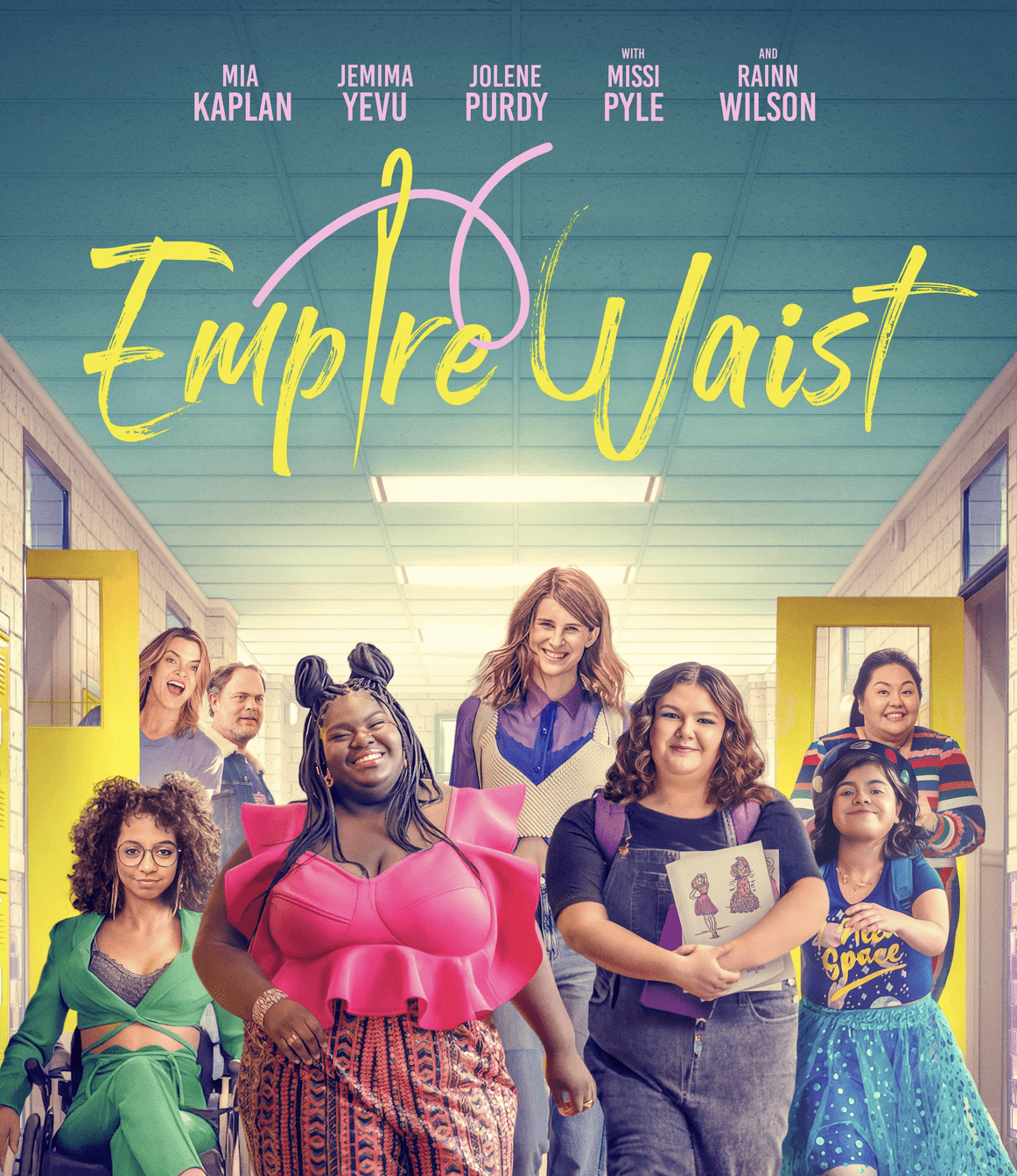By Beth Barhydt
“Empire Waist” is a film that wears its heart unapologetically on its sleeve, a tender exploration of body image, friendship, and the quiet revolution of inclusive fashion. Directed by newcomer Claire Ayoub, a writer, director, and copywriter who runs the production company Try Anyway Productions. Her first feature film is a dramedy called EMPIRE WAIST, which captured the heart of Tom Butterworth who was effusive in his praise of the film.
Ayoub has spent years fine-tuning this project, the film navigates the well-trodden path of high school insecurities with a fresh, empathetic approach. Its protagonist, a plus-sized teen fashion designer, offers a perspective rarely seen on the big screen—one where brilliance and talent push through the shadows of self-doubt and harsh societal scrutiny.
The premise is simple but potent. As Tom Butterworth noted during a post-screening discussion, “There’s a high school student who’s a brilliant fashion designer, but she’s plus size and very self-conscious about her weight.” The film follows her emotional journey as she learns to value herself, not just for her creative genius but for who she is beyond the labels. The story hinges on the delicate balance between her creative aspirations and the haunting fear that her body will overshadow her work.
The heart of “Empire Waist” lies in the friendships the protagonist forges, each with its own complexity and humor. As Butterworth highlighted, “One of her best friends is this hilarious girl who’s all confidence and sass. She brings so much levity to the story.” These friendships—diverse and inclusive in a way that feels both organic and necessary—create the support system that allows the protagonist to reclaim her narrative. The friends themselves span a wide spectrum: a girl in a wheelchair, a tall and awkward classmate, and another who is on the autism spectrum. They are not tokens of diversity but fully realized characters like us all who are grappling with their own insecurities, reflecting the multiplicity of human experience.
Perhaps what makes “Empire Waist” so memorable is its willingness to confront the uncomfortable truths about body image head-on. The protagonist’s mother, though loving, is caught in the all-too-common trap of seeing her daughter’s weight as an insurmountable obstacle, worrying that “no one will look at the fashion; they’ll only look at her body,” as Butterworth recounted. The film, however, rejects that notion with a quiet but firm resolve. The underlying message is clear: the world doesn’t need to change the individual to fit in, but rather the individual needs to change the way they see themselves to shine.
It’s about universal struggles—of finding your voice in a cacophony of societal expectations and ever-present negativity and judgment, of realizing that worth is not dictated by size, color, or ability. The film’s cast brings these themes to life with authenticity. Butterworth’s insights from the creators about the casting process—a search for a size 24 actress that involved national casting calls due to Hollywood’s lack of representation—underscores how rare and necessary films like this are.
Ayoub also uses fashion as a metaphor for liberation. The payoff, a student fashion show designed by the protagonist, is not only a showcase of talent but a rebellion against a world that forces conformity. Each model, dressed in custom designs, embodies a different kind of beauty: “one’s in a wheelchair, one’s super tall and thin, another is on the spectrum,” Butterworth noted. The scene is cathartic, a moment where the characters’ insecurities dissolve under the lights, replaced by self-acceptance and joy.
“Empire Waist” doesn’t try to dazzle with Hollywood gloss or high-octane drama. Instead, it operates in a more intimate space, letting its moments of humor and heartbreak breathe. It’s a film that feels intensely personal, not only because it is rooted in issues many of us face, but because Ayoub gives her characters the space to be vulnerable. The dialogue is crisp, the humor often cutting, but at its core, this is a movie about love—love for oneself, love for one’s craft, and love that comes from finding people who lift you up rather than tear you down.
As Butterworth aptly put it, “If I had to put a subtitle on the movie, it would be ‘I love you the way you are.’” And by the film’s end, that message has fully blossomed. “Empire Waist” may not be the typical box office juggernaut—it’s no “Transformers 21” as Butterworth quipped—but it is the kind of film that sticks with you long after the credits roll. It’s a love letter to everyone who has ever felt less than enough, reminding them that their worth is not measured by the labels other people place on them.




